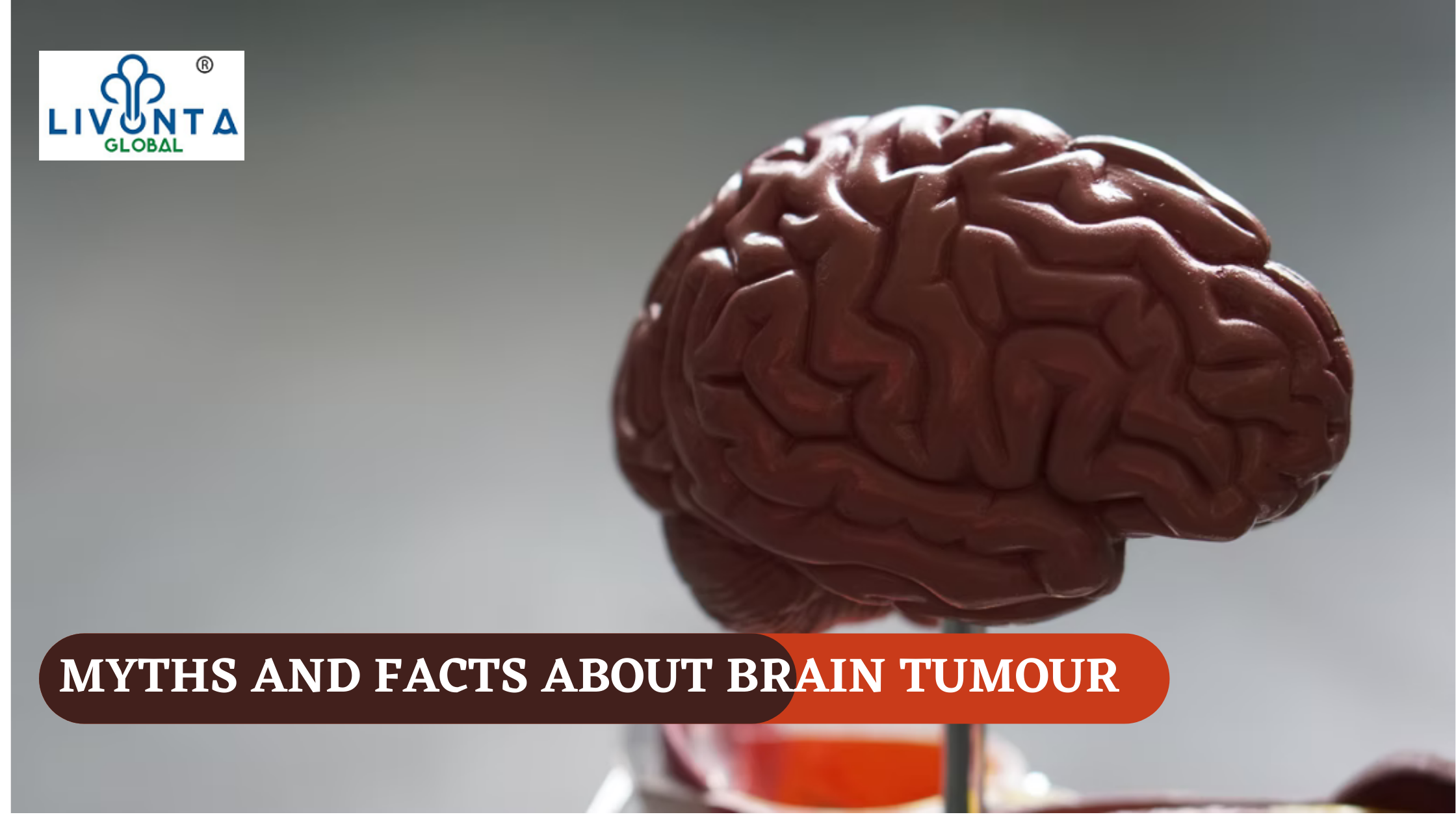A brain tumour is a common form of tumour that develops due to unrestricted growth of tissue in the brain or central spine. A brain tumour can intervene in the functions of the brain. Brain tumours can be of two types, malignant and benign(non-malignant) tumours. Benign brain tumours are non-cancerous, while malignant brain tumours are cancerous. Several studies have claimed that nearly one-third of brain tumours are cancerous. Brain tumours can happen at any stage. In India, this neurological disorder ranges from 5 to 10 per 100,000 population with a growing trend. Though many cancer hospitals in India are offering the best brain cancer treatment in India to patients, still, some myths are preventing its awareness and treatment.
This is the time that we need to debunk those myths so that patients can go for early treatment and diagnosis to combat brain cancer.
Some common symptoms of brain tumour are,
- Headache especially in the early morning
- Morning nausea and vomiting
- Behavioural and cognitive changes
- Blurred or double vision
- Speech and hearing problem
- Tremulousness or dizziness
- Weakness
Popular Myths and Facts about Brain Tumour
A brain tumour is an intricate disease, and it is one of the most challenging cancers that need a detailed assessment for its treatment and recovery. A plethora of myths and misconceptions are surrounding this tumour and you need to address them for successful treatment.
Myth 1: All brain Tumours are Cancerous
Brain tumours can be of two types and they are cancerous and non-cancerous. Only one-third of brain tumours are cancerous that can harm surrounding brain cells and affect nearby tissues. Non-cancerous brain tumours can be treated easily with different treatment methods.
Myth 2: Brain Tumours Develop in the Brain only
A brain tumour may develop in the brain and sometimes, it can be a result of metastasis of cancer from other body parts like the kidney, breast, lungs, intestine, etc. The former is known as a primary tumour whereas the second type of brain tumour is called the secondary tumour. Secondary brain tumours are more frequent than primary ones. Most tumours don’t originate from nerve and brain cells but the supporting cells.
Myth 3: Young People are not Susceptible to Brain Tumour
Brain tumours can happen to anyone at any age. Even some new-borns may suffer from brain tumours. But brain tumours in children and adults are different. They may have different cells of origin and location; thus, they have different types of pathology and presentation. A brain tumour is the second most common cancer among children in India.
Myth 4: If you Sleep with your Mobile Phones next to Your Head, you may Develop Brain Cancer
Mobile phones emit radioactive energy that is absorbed by the tissues but it doesn’t hurt your DNA. This energy may enhance your body temperature a little bit but it will not cause brain tumours. Till now, there are no established links to brain tumours from mobile phone usage. The mutation is the only proven link for brain tumours. Mutation can happen either during birth or may develop during a person’s lifetime.
Myth 5: For all Brain Tumours, Patients may Experience the Same Signs and Symptoms
Every person who is suffering from brain tumours may experience different symptoms depending on the size, site and types of tumours. If you have higher grades of brain tumour, you may experience the signs & symptoms early and they may also disturb various functions of your brain. But some people may not experience symptoms that worsen over time eventually leading to a diagnosis.
Myth 6: Frequent Headaches and Blurred Vision Indicate Brain Tumours
Due to exhaustion and extreme tiredness, you may experience headaches and blurred vision. It is not true that a person with a headache and blurred vision is suffering from a brain tumour. A headache can happen because of various reasons and thus, needs a detailed evaluation. But if you are suffering from persistent headaches and blurred vision, you should consult with a doctor. Your doctor may advise a CT scan and different types of MRI scans for further diagnosis.
Myth 7: If Treated Properly, Brain Tumours are not Recurrent
After the removal of your brain tumour, you should take care of routine check-ups and follow-ups. Though benign tumours can rarely reappear and can be removed surgically, still a thorough follow up is advised. Thus, post-treatment follow-up is important to prevent the recurrence of cancer.
Myth 8: Lifestyle Changes can Prevent Brain Tumour
Lifestyle choices are not responsible for brain tumours and that’s why lifestyle modifications may not be helpful in preventing brain tumours.
These are the top 8 myths and facts about brain tumours.
Livonta Global is a reputed name in the field of medical tourism. The company is partnered with many leading cancer hospitals in India that are offering the best brain cancer treatment in India to patients who want to resume their normal lives after combating brain cancer.
If you are looking for the best cancer treatment in India, you can get in touch with Livonta Global.

Leave a Comment